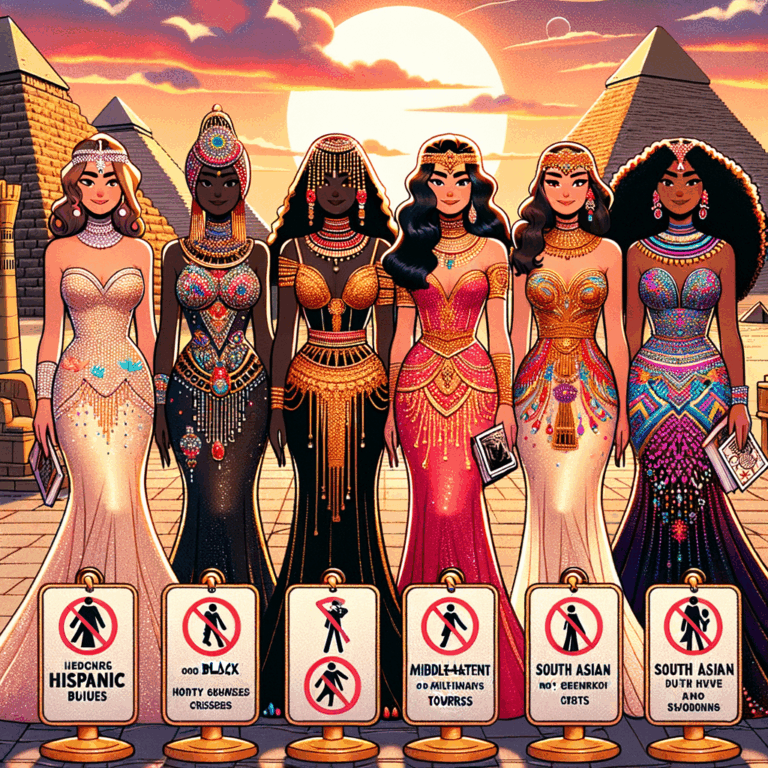
Blog
“Unlock the Power of Data with SS Analytics”
Introduction
SS stands for “Social Security.” It is a government program in the United States that provides financial assistance to eligible individuals and families. The program is primarily funded through payroll taxes and provides benefits such as retirement income, disability benefits, and survivor benefits.
The Impact of Social Media on Society
Social media has become an integral part of our lives, transforming the way we communicate, connect, and share information. Its impact on society is undeniable, as it has revolutionized the way we interact with one another and the world around us. From the way we consume news to the way we form relationships, social media has left an indelible mark on our society.
One of the most significant impacts of social media is its ability to bring people together, regardless of geographical boundaries. Through platforms like Facebook, Twitter, and Instagram, we can connect with friends, family, and even strangers from all corners of the globe. This interconnectedness has fostered a sense of global community, breaking down barriers and promoting understanding and empathy.
Moreover, social media has given a voice to the voiceless. It has provided a platform for marginalized communities to share their stories, raise awareness about social issues, and demand justice. Movements like #BlackLivesMatter and #MeToo have gained momentum through social media, sparking conversations and driving real-world change. Social media has become a powerful tool for activism, empowering individuals to make a difference and challenge the status quo.
In addition to its impact on social activism, social media has also transformed the way we consume news and information. Gone are the days when we relied solely on traditional media outlets for news updates. With just a few taps on our smartphones, we can access a wealth of information from various sources, both mainstream and alternative. This democratization of information has given rise to citizen journalism, where ordinary individuals can report on events as they unfold, providing a fresh perspective and holding those in power accountable.
However, the impact of social media is not without its drawbacks. One of the most significant concerns is the spread of misinformation and fake news. With the ease of sharing information on social media, it has become increasingly challenging to discern fact from fiction. This has led to the proliferation of conspiracy theories, the erosion of trust in traditional media, and the polarization of society. It is crucial for users to be critical consumers of information and verify the credibility of sources before sharing or believing what they read.
Furthermore, social media has also had a profound impact on mental health. The constant exposure to carefully curated highlight reels of others’ lives can lead to feelings of inadequacy and low self-esteem. The pressure to present a perfect image online can be overwhelming, leading to anxiety and depression. It is essential for individuals to strike a balance between their online and offline lives, and to prioritize self-care and mental well-being.
In conclusion, the impact of social media on society is both profound and complex. It has revolutionized the way we connect, communicate, and consume information. It has given a voice to the marginalized and empowered individuals to make a difference. However, it has also brought about challenges such as the spread of misinformation and the negative impact on mental health. As we navigate the ever-evolving landscape of social media, it is crucial to be mindful of its potential and use it responsibly. By harnessing its power for good, we can create a more connected, informed, and empathetic society.
Strategies for Effective Social Media Marketing
In today’s digital age, social media has become an integral part of our lives. It has revolutionized the way we communicate, connect, and consume information. As a result, businesses have recognized the immense potential of social media marketing in reaching their target audience and driving growth. However, with the ever-increasing competition and constantly evolving algorithms, it is crucial for businesses to adopt effective strategies to stand out from the crowd and make a lasting impact.
One of the key strategies for effective social media marketing is to have a clear and well-defined brand identity. Your brand is what sets you apart from your competitors and resonates with your target audience. It is important to establish a consistent tone, style, and visual identity across all your social media platforms. This will help create a cohesive and recognizable brand that people can easily identify and connect with.
Another important aspect of social media marketing is to understand your target audience. Who are they? What are their interests, needs, and pain points? By gaining a deep understanding of your audience, you can tailor your content and messaging to effectively engage and resonate with them. This will not only help you attract more followers but also build a loyal community of brand advocates who will actively promote your business.
Engagement is the lifeblood of social media marketing. It is not enough to simply post content and hope for the best. You need to actively engage with your audience by responding to comments, messages, and mentions. This shows that you value their input and are genuinely interested in building a relationship with them. Additionally, engaging with influencers and industry leaders can help amplify your reach and credibility.
Creativity is a powerful tool in social media marketing. With millions of posts being shared every day, it is important to create content that stands out and captures the attention of your audience. Think outside the box and experiment with different formats such as videos, infographics, and interactive posts. Use captivating visuals, compelling storytelling, and humor to make your content memorable and shareable.
Consistency is key in social media marketing. It is important to maintain a regular posting schedule to keep your audience engaged and interested. However, it is equally important to ensure that your content is of high quality. It is better to post less frequently but deliver valuable and meaningful content than to bombard your audience with mediocre posts. Remember, quality over quantity.
Lastly, data-driven decision making is essential for effective social media marketing. Use analytics tools to track and measure the performance of your social media campaigns. This will help you identify what is working and what is not, allowing you to make informed decisions and optimize your strategies. Pay attention to metrics such as engagement rate, reach, and conversions to gauge the success of your campaigns.
In conclusion, effective social media marketing requires a combination of creativity, strategy, and data-driven decision making. By establishing a clear brand identity, understanding your target audience, actively engaging with your followers, and consistently delivering high-quality content, you can make a lasting impact on social media. Embrace the power of social media and unlock its potential to drive growth and success for your business.
The Role of Social Media in Business Growth
Social media has become an integral part of our lives, transforming the way we communicate, connect, and consume information. It has also revolutionized the way businesses operate, opening up new avenues for growth and success. In today’s digital age, social media plays a crucial role in driving business growth, and its impact cannot be underestimated.
One of the key ways social media contributes to business growth is by increasing brand awareness. Platforms like Facebook, Instagram, and Twitter allow businesses to reach a vast audience, both locally and globally. By creating engaging content and leveraging the power of social sharing, businesses can expand their reach and attract new customers. Social media provides a platform for businesses to showcase their products or services, build a strong brand identity, and establish themselves as industry leaders.
Moreover, social media enables businesses to engage with their audience on a more personal level. Through comments, likes, and shares, businesses can interact with their customers, address their concerns, and build meaningful relationships. This direct line of communication fosters customer loyalty and trust, which are essential for long-term business growth. By actively engaging with their audience, businesses can gain valuable insights into customer preferences, needs, and expectations, allowing them to tailor their products or services accordingly.
In addition to brand awareness and customer engagement, social media also plays a vital role in driving website traffic and generating leads. By strategically placing links to their website in social media posts, businesses can direct users to their online platforms, where they can learn more about the business and make a purchase. Social media advertising further enhances this process by targeting specific demographics and interests, ensuring that businesses reach the right audience at the right time. By driving traffic to their website and generating leads, businesses can increase their conversion rates and ultimately boost their sales.
Furthermore, social media provides businesses with a platform to showcase their expertise and thought leadership. By sharing valuable and informative content, businesses can position themselves as industry experts and gain credibility among their target audience. This not only attracts new customers but also opens up opportunities for collaborations, partnerships, and media coverage. By establishing themselves as thought leaders, businesses can differentiate themselves from their competitors and gain a competitive edge in the market.
Lastly, social media allows businesses to stay updated with the latest industry trends and developments. By following industry influencers, competitors, and relevant hashtags, businesses can gain valuable insights into market trends, consumer behavior, and emerging technologies. This knowledge enables businesses to adapt their strategies, innovate, and stay ahead of the curve. Social media acts as a constant source of inspiration and information, empowering businesses to make informed decisions and drive growth.
In conclusion, social media plays a pivotal role in driving business growth in today’s digital age. From increasing brand awareness and fostering customer engagement to driving website traffic and generating leads, social media offers businesses a multitude of opportunities for success. By leveraging the power of social media, businesses can expand their reach, build strong relationships with their audience, and position themselves as industry leaders. In this fast-paced and ever-evolving digital landscape, social media is not just a tool; it is a catalyst for growth and innovation. So, embrace the power of social media and unlock the limitless possibilities it holds for your business.
How to Build a Strong Personal Brand on Social Media

In today’s digital age, social media has become an integral part of our lives. It’s not just a platform for connecting with friends and sharing photos; it’s also a powerful tool for building a strong personal brand. Whether you’re an entrepreneur, a freelancer, or simply someone who wants to stand out from the crowd, having a strong personal brand on social media can open up a world of opportunities.
So, how do you go about building a strong personal brand on social media? It all starts with authenticity. In a world where everyone is trying to be someone else, being true to yourself is a breath of fresh air. People are drawn to authenticity, and they want to connect with real people, not just a polished facade. So, be yourself, share your passions, and let your personality shine through.
Another key aspect of building a strong personal brand on social media is consistency. Consistency is the key to building trust and credibility. It’s not enough to post sporadically or only when you have something to promote. You need to show up consistently, engage with your audience, and provide value. Whether it’s sharing helpful tips, inspiring stories, or behind-the-scenes glimpses into your life, consistency is what will keep your audience coming back for more.
In addition to authenticity and consistency, it’s also important to find your niche. With millions of users on social media, it can be easy to get lost in the noise. That’s why it’s crucial to find your unique voice and carve out a niche for yourself. What are you passionate about? What sets you apart from others in your field? By finding your niche and focusing on it, you’ll be able to attract a targeted audience who resonates with your message.
Building a strong personal brand on social media also requires engagement. It’s not enough to simply post content and hope for the best. You need to actively engage with your audience, respond to comments and messages, and participate in conversations. Social media is a two-way street, and by engaging with your audience, you’ll not only build stronger relationships but also gain valuable insights and feedback.
Furthermore, storytelling is a powerful tool for building a strong personal brand on social media. People love stories, and they are more likely to remember and connect with your brand if you can tell a compelling story. Whether it’s sharing your journey, highlighting your successes and failures, or showcasing the impact you’ve made, storytelling allows you to create an emotional connection with your audience and make a lasting impression.
Lastly, building a strong personal brand on social media requires patience and perseverance. Rome wasn’t built in a day, and neither will your personal brand. It takes time to build a loyal following, gain recognition, and establish yourself as an authority in your field. So, don’t get discouraged if you don’t see immediate results. Keep showing up, keep providing value, and keep refining your brand. With time and dedication, you’ll be able to build a strong personal brand that opens up doors and opportunities you never thought possible.
In conclusion, building a strong personal brand on social media is a journey that requires authenticity, consistency, finding your niche, engagement, storytelling, and patience. By following these steps and staying true to yourself, you’ll be able to create a personal brand that not only stands out but also inspires and resonates with your audience. So, go ahead, take that first step, and start building your personal brand on social media today. The possibilities are endless.
The Psychology Behind Social Media Addiction
Social media has become an integral part of our lives, with billions of people around the world using platforms like Facebook, Instagram, and Twitter on a daily basis. While these platforms have undoubtedly brought people closer together and revolutionized the way we communicate, they have also given rise to a new phenomenon: social media addiction. But what is it about social media that makes it so addictive? What drives us to constantly check our notifications and scroll through endless feeds?
One of the key factors behind social media addiction lies in the way these platforms are designed. Social media companies employ teams of psychologists and behavioral scientists to create addictive features that keep users hooked. From the moment we open an app, we are bombarded with notifications, likes, and comments, all designed to trigger a release of dopamine in our brains. This neurotransmitter is associated with pleasure and reward, and its release reinforces the behavior of using social media, making it difficult to resist.
Moreover, social media platforms are carefully curated to present us with an idealized version of reality. We see our friends and acquaintances posting pictures of their perfect vacations, glamorous parties, and happy relationships. This constant exposure to others’ seemingly perfect lives can lead to feelings of inadequacy and FOMO (fear of missing out). We become obsessed with comparing ourselves to others and seeking validation through likes and comments, perpetuating a cycle of addiction.
Another psychological factor that contributes to social media addiction is the need for social connection. Humans are inherently social beings, and social media provides us with a virtual space to connect with others. However, this virtual connection often lacks the depth and authenticity of real-life interactions. We may have hundreds or even thousands of friends on social media, but how many of them do we truly know and trust? This lack of genuine connection can leave us feeling lonely and isolated, driving us to seek solace in the virtual world.
Furthermore, social media addiction can be fueled by the fear of missing out on important information or events. We constantly feel the need to stay updated and connected, fearing that we might miss out on something important if we disconnect from social media. This fear is amplified by the constant stream of information and news that bombards us on these platforms. We are constantly exposed to a never-ending flow of content, making it difficult to disconnect and take a break.
So, how can we break free from the grips of social media addiction? The first step is to become aware of the addictive nature of these platforms and the impact they have on our mental well-being. We need to recognize that the perfect lives we see on social media are often just a façade, and that true happiness and fulfillment come from real-life connections and experiences.
Setting boundaries and establishing a healthy relationship with social media is also crucial. This can involve limiting the amount of time we spend on these platforms, turning off notifications, and creating designated tech-free zones in our lives. By taking control of our social media usage, we can regain control of our time and attention, and focus on what truly matters.
Ultimately, social media addiction is a complex issue that stems from our innate human desires for connection, validation, and information. By understanding the psychology behind this addiction, we can take steps to break free from its grip and find a healthier balance in our lives. Let us not be slaves to the virtual world, but rather, let us embrace the beauty of genuine human connection and live our lives to the fullest.
Social Media and Mental Health: Understanding the Connection
Social Media and Mental Health: Understanding the Connection
In today’s digital age, social media has become an integral part of our lives. It allows us to connect with friends and family, share our thoughts and experiences, and stay updated on the latest news and trends. However, as much as social media has its benefits, it also has its drawbacks, particularly when it comes to our mental health.
One of the main issues with social media is the constant comparison it fosters. We are bombarded with carefully curated posts and images that depict the highlight reel of people’s lives. It’s easy to fall into the trap of comparing ourselves to others and feeling inadequate. We start questioning our own worth and happiness based on what we see on our screens.
Moreover, social media can also contribute to feelings of loneliness and isolation. While it may seem paradoxical, spending excessive amounts of time on social media can actually make us feel more disconnected from others. We may have hundreds of friends and followers, but the lack of genuine human interaction can leave us feeling empty and alone.
Another aspect of social media that affects our mental health is the constant need for validation. We seek likes, comments, and shares as a measure of our self-worth. When we don’t receive the desired response, it can lead to feelings of rejection and low self-esteem. We become dependent on external validation, rather than cultivating a sense of self-worth from within.
Furthermore, social media can also contribute to anxiety and depression. The constant exposure to negative news, cyberbullying, and online harassment can take a toll on our mental well-being. We may find ourselves constantly on edge, worrying about what others think of us or fearing the judgment of our online peers.
However, it’s important to remember that social media is not inherently bad. It’s how we use it that determines its impact on our mental health. By being mindful of our social media habits, we can create a healthier relationship with these platforms.
First and foremost, it’s crucial to limit our screen time. Setting boundaries and allocating specific times for social media use can help prevent us from getting sucked into the endless scroll. Instead, we can focus on activities that promote our well-being, such as spending time with loved ones, pursuing hobbies, or engaging in physical exercise.
Additionally, we should be selective about the content we consume. Unfollow accounts that make us feel inadequate or trigger negative emotions. Instead, follow accounts that inspire and uplift us. Surrounding ourselves with positive and empowering content can have a significant impact on our mental state.
Moreover, it’s important to remember that what we see on social media is often a distorted reality. People tend to showcase the best parts of their lives, but behind the filters and perfectly posed pictures, everyone has their struggles. Reminding ourselves of this can help alleviate the pressure to compare ourselves to others.
Lastly, we should prioritize real-life connections over virtual ones. While social media can be a great tool for staying connected, it should never replace genuine human interaction. Making an effort to spend quality time with loved ones, engaging in face-to-face conversations, and participating in activities that foster real connections can greatly improve our mental well-being.
In conclusion, social media and mental health are undeniably connected. While social media has its benefits, it can also have detrimental effects on our mental well-being. By being mindful of our social media habits, setting boundaries, and prioritizing real-life connections, we can create a healthier relationship with these platforms. Remember, social media should enhance our lives, not define them.
The Evolution of Social Media Platforms: Past, Present, and Future
Social media platforms have become an integral part of our lives, transforming the way we connect, communicate, and share information. From the early days of MySpace and Friendster to the current dominance of Facebook and Instagram, these platforms have evolved significantly over time. But what does the future hold for social media? Let’s take a journey through the past, present, and future of social media platforms.
In the early 2000s, social media was a relatively new concept. MySpace and Friendster were among the pioneers, allowing users to create profiles, connect with friends, and share updates. These platforms were revolutionary, providing a space for individuals to express themselves and connect with others in ways that were previously unimaginable. However, they were limited in terms of functionality and user experience.
Then came Facebook, the game-changer that revolutionized social media. With its clean interface, user-friendly features, and the ability to connect with friends and family, Facebook quickly became the go-to platform for social networking. It allowed users to share photos, videos, and status updates, creating a virtual space where people could stay connected and informed about each other’s lives. Facebook’s success paved the way for other platforms like Twitter and LinkedIn, each with its own unique features and target audience.
As social media platforms continued to evolve, so did the way we use them. The rise of smartphones and mobile internet access brought social media into the palm of our hands. Suddenly, we could access our favorite platforms anytime, anywhere. This led to a surge in user engagement and content creation. People started sharing their thoughts, experiences, and even their meals in real-time. Social media became a powerful tool for self-expression and personal branding.
Today, social media platforms have become more than just a means of communication. They have become a source of inspiration, entertainment, and even a platform for activism. Influencers and content creators have emerged, leveraging social media to build their personal brands and connect with their audience. Social media has also become a powerful marketing tool for businesses, allowing them to reach a wider audience and engage with customers in a more personal way.
But what does the future hold for social media platforms? As technology continues to advance, we can expect social media to become even more immersive and interactive. Virtual reality and augmented reality are already making their way into social media, allowing users to experience content in a whole new way. We can also expect social media platforms to become more personalized, using artificial intelligence to curate content based on individual preferences and interests.
Furthermore, social media platforms will likely continue to play a significant role in shaping public opinion and driving social change. We have already seen how social media has been used as a tool for activism, allowing individuals to raise awareness about important issues and mobilize communities. In the future, we can expect social media to become an even more powerful force for positive change, empowering individuals and communities to make a difference.
In conclusion, the evolution of social media platforms has been nothing short of remarkable. From the early days of MySpace and Friendster to the current dominance of Facebook and Instagram, these platforms have transformed the way we connect, communicate, and share information. As we look to the future, we can expect social media to become even more immersive, personalized, and influential. So, let’s embrace the power of social media and use it to inspire, connect, and make a positive impact on the world.
Social Media Influencers: Power and Responsibility
In today’s digital age, social media has become an integral part of our lives. It has transformed the way we communicate, connect, and consume information. With the rise of social media platforms, a new breed of celebrities has emerged – social media influencers. These individuals have amassed a large following and have the power to influence the thoughts, opinions, and behaviors of their followers. However, with great power comes great responsibility.
Social media influencers have the ability to shape public opinion and influence consumer behavior. They have the power to sway their followers’ decisions on what products to buy, where to travel, and even how to live their lives. This power can be both a blessing and a curse. On one hand, influencers have the opportunity to use their platform for good, to inspire and motivate their followers to make positive changes in their lives. On the other hand, if used irresponsibly, this power can be detrimental, leading to the spread of misinformation and the promotion of harmful behaviors.
It is crucial for social media influencers to recognize the power they hold and to use it responsibly. They have a responsibility to their followers to provide accurate information and to promote ethical behavior. This means fact-checking before sharing information, being transparent about sponsored content, and promoting products and services that align with their values. By doing so, influencers can build trust with their followers and maintain their credibility.
In addition to promoting ethical behavior, social media influencers also have the power to inspire and motivate their followers. They can use their platform to spread positivity, share personal stories of triumph and resilience, and encourage their followers to pursue their dreams. By sharing their own experiences and vulnerabilities, influencers can create a sense of connection and empathy with their audience, reminding them that they are not alone in their struggles.
However, with great power comes great responsibility, and social media influencers must be mindful of the impact their words and actions can have. They must be aware of the potential consequences of their posts and consider the potential harm they may cause. This means being mindful of the messages they are sending and the values they are promoting. It also means being open to feedback and criticism, and being willing to learn and grow from their mistakes.
Social media influencers have the power to shape public opinion and influence consumer behavior, but they also have a responsibility to use this power for good. They must recognize the impact they have on their followers and be mindful of the messages they are sending. By promoting ethical behavior, inspiring and motivating their followers, and being open to feedback, influencers can use their platform to make a positive impact on the world.
In conclusion, social media influencers have a unique power and responsibility in today’s digital age. They have the ability to shape public opinion, influence consumer behavior, and inspire and motivate their followers. However, with this power comes the responsibility to use it ethically and responsibly. By promoting accurate information, being transparent about sponsored content, and spreading positivity, influencers can make a positive impact on the world and create a better digital landscape for all.
Social Media and Politics: Examining its Influence on Elections
Social Media and Politics: Examining its Influence on Elections
In today’s digital age, social media has become an integral part of our lives. It has revolutionized the way we communicate, connect, and share information. But beyond its role as a platform for personal interactions, social media has also emerged as a powerful tool in the realm of politics. Its influence on elections cannot be underestimated, as it has the potential to shape public opinion, mobilize voters, and even sway election outcomes.
One of the most significant ways social media impacts elections is by providing a platform for political discourse. In the past, political discussions were limited to traditional media outlets, such as newspapers and television. However, with the advent of social media, anyone with an internet connection can voice their opinions and engage in political conversations. This democratization of political discourse has allowed for a more diverse range of voices to be heard, challenging the dominance of traditional media and political elites.
Moreover, social media has the power to shape public opinion by disseminating information and influencing the narrative surrounding political candidates. Through platforms like Facebook, Twitter, and Instagram, politicians can directly communicate with their constituents, bypassing traditional media gatekeepers. This direct interaction allows politicians to craft their own narratives, control their messaging, and connect with voters on a more personal level. By doing so, they can shape public perception and influence voter behavior.
Additionally, social media has proven to be a powerful tool for mobilizing voters. Political campaigns can leverage social media platforms to reach a wider audience, engage with potential supporters, and encourage voter turnout. Through targeted advertising, campaigns can tailor their messages to specific demographics, ensuring that their message resonates with the intended audience. This personalized approach has the potential to mobilize previously disengaged voters, making them active participants in the democratic process.
However, the influence of social media on elections is not without its challenges. The spread of misinformation and fake news has become a significant concern. With the ease of sharing information on social media, false narratives can quickly gain traction and influence public opinion. This poses a threat to the integrity of elections, as voters may be swayed by inaccurate or misleading information. It is crucial for social media platforms, politicians, and voters alike to be vigilant in discerning fact from fiction and promoting responsible sharing of information.
In conclusion, social media has emerged as a powerful force in the realm of politics, shaping public opinion, mobilizing voters, and influencing election outcomes. Its ability to democratize political discourse, provide a platform for direct communication, and mobilize previously disengaged voters has transformed the political landscape. However, the challenges posed by the spread of misinformation and fake news must be addressed to ensure the integrity of elections. As we navigate the ever-evolving digital landscape, it is essential for politicians, voters, and social media platforms to work together to harness the potential of social media while safeguarding the democratic process. By doing so, we can create a more informed, engaged, and inclusive democracy for all.
The Dark Side of Social Media: Cyberbullying and Online Harassment
In today’s digital age, social media has become an integral part of our lives. It allows us to connect with friends and family, share our thoughts and experiences, and stay updated on the latest news and trends. However, there is a dark side to social media that often goes unnoticed – cyberbullying and online harassment. These issues have become increasingly prevalent, causing immense harm to individuals and communities.
Cyberbullying is a form of harassment that takes place online. It involves the use of technology, such as social media platforms, to intimidate, threaten, or humiliate others. The anonymity provided by the internet makes it easier for bullies to target their victims without fear of consequences. This form of harassment can have devastating effects on the mental and emotional well-being of those who experience it.
Online harassment, on the other hand, encompasses a broader range of abusive behavior. It includes not only cyberbullying but also hate speech, trolling, and the spreading of false information. The anonymity and distance provided by social media platforms often embolden individuals to engage in such behavior, as they feel shielded from the repercussions of their actions. This can lead to a toxic online environment, where individuals are constantly subjected to negativity and hostility.
The impact of cyberbullying and online harassment cannot be underestimated. Victims often experience feelings of fear, anxiety, and depression. They may withdraw from social interactions, lose self-esteem, and even contemplate self-harm or suicide. The psychological scars left by these experiences can last a lifetime, affecting every aspect of a person’s life. Moreover, the ripple effect of online harassment extends beyond the individual, impacting families, friends, and communities as a whole.
It is crucial that we address this dark side of social media and work towards creating a safer and more inclusive online environment. Education plays a vital role in combating cyberbullying and online harassment. By raising awareness about the consequences of such behavior, we can empower individuals to stand up against it and support those who are affected. Schools, parents, and communities must come together to educate young people about responsible online behavior and the importance of empathy and respect.
Social media platforms also have a responsibility to tackle cyberbullying and online harassment. They must implement stricter policies and guidelines to prevent and address abusive behavior. This includes providing clear reporting mechanisms, swift action against offenders, and support for victims. By creating a safer online space, social media platforms can foster a sense of community and encourage positive interactions.
As individuals, we can also make a difference. We must be mindful of our own behavior online and strive to be kind and respectful towards others. It is important to remember that behind every profile picture is a real person with feelings and emotions. By spreading positivity and standing up against online harassment, we can create a ripple effect of compassion and understanding.
In conclusion, the dark side of social media, cyberbullying, and online harassment, is a pressing issue that demands our attention. It is essential that we work together to create a safer and more inclusive online environment. Through education, stricter policies, and individual responsibility, we can inspire positive change and ensure that social media remains a platform for connection and empowerment rather than a breeding ground for hate and harm. Let us strive to make the digital world a place where everyone feels safe, respected, and valued.
Q&A
1. What is SS?
SS stands for Social Security, a government program in the United States that provides financial support to retired and disabled individuals.
2. How does SS work?
SS is funded through payroll taxes, with workers and employers contributing a portion of their earnings. Eligible individuals can receive monthly benefits based on their earnings history and age.
3. Who is eligible for SS benefits?
Eligibility for SS benefits is based on factors such as age, work history, and disability status. Generally, individuals who have paid into the system through payroll taxes for a certain number of years are eligible.
4. When can I start receiving SS benefits?
The age at which you can start receiving SS benefits depends on your birth year. Full retirement age ranges from 66 to 67, but you can choose to start receiving reduced benefits as early as age 62.
5. How are SS benefits calculated?
SS benefits are calculated based on your average indexed monthly earnings during your highest-earning years. The calculation takes into account your work history and the age at which you start receiving benefits.
6. Can I work and receive SS benefits at the same time?
Yes, you can work and receive SS benefits, but there are income limits if you start receiving benefits before reaching full retirement age. If you earn above these limits, a portion of your benefits may be withheld.
7. Can non-US citizens receive SS benefits?
Non-US citizens may be eligible for SS benefits if they meet certain criteria, such as having worked in the US and paid into the system. The specific requirements depend on the individual’s immigration status.
8. Are SS benefits taxable?
SS benefits can be subject to federal income taxes if your total income exceeds a certain threshold. The amount of benefits subject to taxation depends on your income level.
9. Can I receive SS benefits if I have never worked?
In some cases, individuals who have never worked may be eligible for SS benefits based on their spouse’s work history. This is known as spousal benefits.
10. Can I apply for SS benefits online?
Yes, you can apply for SS benefits online through the Social Security Administration’s website. The online application process is convenient and allows you to track the status of your application.
Conclusion
In conclusion, SS (Social Security) is a government program in many countries that provides financial support to individuals who are retired, disabled, or have lost a loved one. It aims to ensure a basic level of income and security for eligible individuals and their families.
Related Posts
What to Wear to a Tennis Match: Stunning Picks
Looking to ace your style game at the next tennis match? Discover how a chic blue hoodie can become your winning choice, blending casual comfort with a dash of courtside chic.
Stunning Black Tie Attire: Effortless Elegance Unveiled
Whether youre deciding what to wear at a concert or a high-society gala, discovering your ideal black tie outfit is all about embracing effortless elegance that echoes your unique style and sophistication. Lets dive into crafting that perfect, head-turning ensemble together.
Egypt Dress Code: Must-Have Tips for Female Tourists
Navigating the dress code in Egypt can feel like a delicate dance, but fear not, fashionable traveler! Our expert tips will help you dress respectably while still showcasing your unique style, ensuring every moment of your journey is as comfortable as it is chic.
Must-Have Outfits for a Steam Room Visit
Step into the steam room with confidence and elegance by mastering **what to wear to a steam room**. Our guide ensures you stay effortlessly stylish and supremely comfortable, no matter the humidity!
K-Pop Concert Attire: Must-Have Outfits for Trendsetters
Step into the spotlight at your next K-Pop concert with outfits that echo the electrifying energy of BTS, BLACKPINK, or EXO! Let us guide you through selecting vibrant, trend-setting pieces that not only capture the essence of K-pop culture but also showcase your individual flair and style.
Stunning Outfits for College Football Games: Score Big!
Dress to impress at your next college football game with Covetis luxurious and spirited fashion finds! Whether you’re cheering from the bleachers or a cozy college bar, discover outfits that truly resonate with your personal style and amplify your game-day experience.
Stunning Shoe Styles for Winter Graduations!
Deciding what to wear for a winter graduation can be a breeze, especially with the right shoes! Let me guide you through picking stylish yet practical footwear that will have you walking across that stage with confidence and grace.
What to Wear: Stunning Outfits for Theater Nights
Soaring above the clouds in a hot air balloon is an unparalleled adventure, and choosing what to wear is crucial for comfort and style. Lets ensure your outfit is as breathtaking as the view, blending chic with practicality for an unforgettable aerial experience.
Country Club Chic: Must-Have Outfits for Elegant Evenings
For your next pearls and prosecco bridal shower, embrace the timeless allure of country club chic with outfits that blend classic elegance with a touch of modern sophistication. Discover how to curate that perfect ensemble that will have you radiating confidence and style at any upscale event.
Stunning & Safe: Best Outfits for Food Workers
Stepping into the courtroom as a witness requires a thoughtful selection of attire that reflects professionalism and respect. Discover the key elements of dressing appropriately for court to ensure you present a dignified and sincere image that supports the gravitas of the proceedings.
Fine Dining Fashion: Must-Have Looks for Green Blazers
Stepping into a fine dining restaurant requires a touch of elegance and a dash of style; discover how a sophisticated green blazer can elevate your next gourmet outing, ensuring you look as exquisite as the dishes being served.
Stunning Jewelry Must-Haves for Bridesmaids
Deciding what jewelry to wear as a bridesmaid is more than just adornment; its about crafting moments and memories. Let me guide you through selecting stunning pieces that complement the bridal glow and celebrate your unique touch to the day’s enchantment.



























